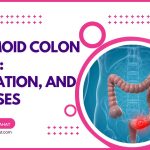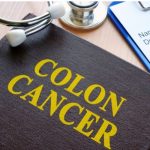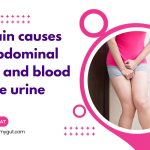Stomach Gurgling and Pain in Left Side: 7 Causes, Gastroenterologist Explains.
Our content is not intended nor recommended as a substitute for medical advice by your doctor. Use for informational purposes only.
1. Gas pain (simple colon spasms).
Everyone complains of abdominal pain, and the most causes of left side stomach gurgling and pain are being. Before rushing into the worst-case scenarios, you better think of the benign and common conditions.
Gas build-up inside the left descending colon is probably the most common cause of stomach gurgling and pain in the left side.
Gas pain often comes and goes according to what you eat. Excess consumption of gas-producing foods triggers such symptoms.
Simple gas pain can be a result of mild forms of food intolerance. Moreover, it can affect a completely healthy individual after eating large amounts of gas-producing foods.
Bacteria inside your digestive tract act up foods. Certain foods produce more gas than others (reference).
We discussed the causes of too much gas in-depth in this article. Review the amounts and the types of food or keep a food diary to evaluate the effect of food on stomach gurgling and left side pain.
The list of gas-producing foods include:
| ITEM | EXAMPLES |
| 1. Milk and dairy products | – milk, – ice cream, – and sometimes, cheese and yogurt. |
| 2. Vegetables | – Broccoli, – cauliflower, – Brussel sprouts, – onions, – leeks, – parsnips, – celery, – radishes, – asparagus, – cabbage, – kohlrabi, – cucumber, – potatoes, – turnips, – and rutabaga. |
| 3. Fruits | – Prunes, – apricots, – apples, – pears, – peaches, – raisins, – bananas |
| 4. Whole grains | -wheat, – oats, – bagels, – wheat germ, – pretzels, – bran/bran cereal |
| 5. Legumes | – Beans, – peas, – baked beans, – soybeans, – lima beans |
| 6. Fats | Fried and high-fat foods. |
| 7. Drinks | – Carbonated beverages, – beer, – carbonated medications |
| 8. Others | – chewing gum, – artificial sweeteners |
2. Irritable Bowel syndrome.
Irritable bowel syndrome is another common cause of stomach gurgling and pain. It is a widespread disease. About 10-15% of people worldwide suffer from IBS.
IBS is a functional disease of your digestive system. It can affect any part of your stomach (abdomen). Also, it can cause isolated left-sided stomach gurgling and pain.
IBS is different from gas pain. IBS is more severe, more persistent. IBS pain is a long-term disease of flare-ups and remissions of abdominal pain. The frequency of abdominal pain is at least one day per week for several months.
IBS is diagnosed on a clinical basis as there is no test to diagnose it. Symptoms of IBS include:
- Recurrent abdominal pain in attacks (at least one day per week).
- The abdominal pain should affect you for at least three consecutive months.
- Stomach pain and gurgling are often associated with defecation (Pain is relieved after passing stool or gas). However, in a smaller group of people, passing stool can make the IBS pain worse.
- Bloating and distension.
- Changes in stool consistency (either hard stool or loose stool).
- Changes in bowel habits (constipation or diarrhea).
- Passing mucus in stool.
Learn how IBS is diagnosed HERE.
3. Chronic constipation.
Chronic constipation is a widespread condition. Females are often affected more than meals. Chronic constipation can be secondary to Constipation-predominant IBS or occurs as a separate entity.
The left side is the location of the last parts of your colon (the descending and sigmoid colon). The hard stools build up in the sigmoid and descending colon on the left side with chronic constipation.
Left-sided stomach gurgling, pain, or discomfort is the most frequent location of constipation pain.
Constipation is defined as the passage of hard stool or bowel movements less than three times per week (reference). Consult your doctor if you have left stomach gurgling and pain with persistent constipation.
Also, note that most of the widely used laxatives for constipation can cause stomach gurgling and pain despite the improvement in constipation.
4. Food intolerance and allergy.
Food intolerance occurs when your gut has trouble digesting or absorption certain types of food or food component.
As a result, the unprocessed and/or unabsorbed foods remain longer inside your intestines.
Bacteria then consume the stagnant food and produce extra gas (even with average amounts of food).
The more you eat from the offending foods, the more you will get so much gas all the time.
Food intolerance is widespread, affecting up to 20% of people (reference). Tens or hundreds of types of food can produce intolerance. The most common form is the intolerances to milk and dairy products (lactose intolerances.
Food intolerance is underestimated as a cause of abdominal pain and gurgling. For example, lactose intolerances can affect up 90% of certain races as blacks and native Americans. (reference).
Food intolerance is different from food allergy. Food allergy is defined as an allergic reaction to food (mediated by your immune system).
The differences between food intolerance and allergy are explained in the table below.
| Food intolerance | Food allergy |
| Affects 15-20% of the population | Affects nearly 2-5% of adults |
| Difficulty digesting certain types of food (not immune-mediated allergy). | An immune-mediated reaction to certain foods or food components. |
| Causes “recurrent acute” or “chronic” attacks of diarrhea, so much gas, and bloating. | Usually causes acute attacks related to the ingestion of offending food. |
| Intestinal symptoms: diarrhea, extensive gas, bloating, distension (looking pregnant), and abdominal pain | Intestinal symptoms are the same |
| No extraintestinal symptoms | Extraintestinal symptoms like rashes, urticaria, swollen lips or face, or severe life-threatening allergic reactions. |
| The severity of your symptoms is proportional to the amount you eat from the offending food. | Even trace amounts of the offending food can produce severe symptoms. |
Common offending foods:
| Common offending foods: (examples)
|
5. Acute or chronic infections.
The majority of gut infections (gastroenteritis) are acute and self-limiting. Chronic infections also occur. Undiagnosed chronic gut infection can be a cause of left-side stomach gurgling and pain.
Common causes of chronic gut infections:
- Parasites: Cryptosporidium, Cyclospora, Entamoeba histolytica, Giardia, and Microsporidia.
- Bacteria: Campylobacter, Aeromonas, Closteroides difficile, E. coli, Salmonella, and shigella.
- Viruses: Norovirus or rotavirus.
- Unkown cause of chronic infectious diarrhea (a condition called brained diarrhea).
People who have a weakened immune system (by disease or drugs) are at higher risk of chronic infectious diarrhea, stomach gurgling, and pain.
6. Diverticulitis.
The most common site of diverticular pain is the lower left abdomen. A colon diverticulum is a sac or pouch in the wall of the colon.
The presence of diverticula is familiar and increases with age. For example, the prevalence of diverticulosis is less than 20% at the age of forty. Then, its prevalence increases with age to reach 60% at 60 (reference).
Commonly, the diverticula have no symptoms. However, they can get inflamed, form abscesses, or even become perforated.
The inflammation or abscess formation of the colon diverticula is called “diverticulitis.”
Symptoms of diverticulitis include:
- Stomach gurgling and pain in the left side of the lower abdomen. It is the most common symptom due to the involvement of the sigmoid colon.
- The pain is usually constant, lasts for days with a gradual increase in its intensity.
- Nausea and/or vomiting.
- Low-grade fever can also occur.
- A sense of tender mass in the lower left abdomen (in 20% of patients with acute diverticulitis).
- Severe tenderness or gardening in the lower left abdomen.
- In severe cases (with access and perforation): low blood pressure and shock may be present.
- Change in bowel habits: constipation occurs in about 50% of patients with acute diverticulitis, and diarrhea in 25-35% (ref).
7. Inflammatory bowel disease.
Inflammatory bowel disease is characterized by unexplained inflammation and ulceration of:
- The colon and theorectum (ulcerative colitis).
- The entire gastrointestinal tract (Crohn’s disease).
According to the CDC, about 1.3% of us adults (around 3 million) reported being diagnosed with IBD (reference).
Sigmoid or left colon ulcerative colitis can cause left-sided stomach gurgling and pain.
Symptoms of IBD include:
- persistent diarrhea.
- Mucus and/or blood in the stool.
- Frank rectal bleeding.
- Sharp abdominal pain: can occur at any site, including the lower left abdomen.
- Generalized fatigue.
- Unexplained weight loss.
The IBD is diagnosed by performing a colonoscopy to visualize the lesions (ulcers) and biopsy.
IBD is a more severe condition than irritable bowel syndrome. Therefore, it requires medical follow-up and specific treatments.
8. Others:
The below causes are either less frequent, or their symptoms don’t typically cause stomach gurgling:
- SIBO (small intestinal bacterial overgrowth).
- Colorectal cancer.
- Left ureteric colic.
- Left ovarian cyst.
- Ovulation pain.
- Enlarged spleen.
- Left tubal pregnancy.
- Pelvic inflammatory disease.
MORE:
- 8 Causes of feeling sick and stomach gurgling: In-depth Answers.
- Sigmoid Colon Pain: Location, and Causes.
- Evidence-based
- Written by a doctor.






